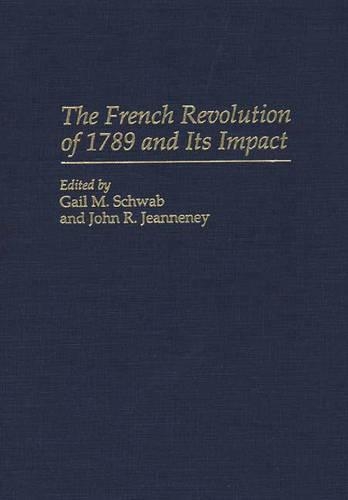
The French Revolution of 1789 and Its Impact
(Hardback)
Publishing Details
The French Revolution of 1789 and Its Impact
By (Author) Gail M. Schwab
Edited by John R. Jeanneney
Bloomsbury Publishing PLC
Praeger Publishers Inc
27th June 1995
United States
Classifications
Tertiary Education
Non Fiction
Revolutions, uprisings, rebellions
European history
Political science and theory
944.04
Physical Properties
Hardback
392
Description
The essays in this collection, drawn from a Hofstra University bicentennial conference on the French Revolution, seek to come to terms, often from conflicting points of view, with the complex relationship between events and their representations. The question 'How did the lived experience that eventually became known as the French Revolution come to be organized' provides a common thread for the collection. Individual chapters examine the Revolution from the vantage points of theology and philosophy, theater and literature, as well as politics and history. As the contributors show, the French Revolution was more than a series of political events that took place in one European country at the end of the 18th century. Instead, it was a trans-historical, multi-national, and multi-cultural discourse. It served as a point of reference by which and through which a complex of cultural values and styles could be defined, and as a model (even a negative model) for the elaboration of ideologies, and of political and administrative strategies for bureaucracies around the world. An invaluable collection for all students of the Revolution and its impact.
Author Bio
GAIL M. SCHWAB is Associate Professor of French at Hofstra University. She has published on Flaubert and the feminist philosopher Luce Irigaray. JOHN R. JEANNENEY is Associate Professor of History at Hofstra University. His publications are focused on the history of European public policies of natural resource management.
